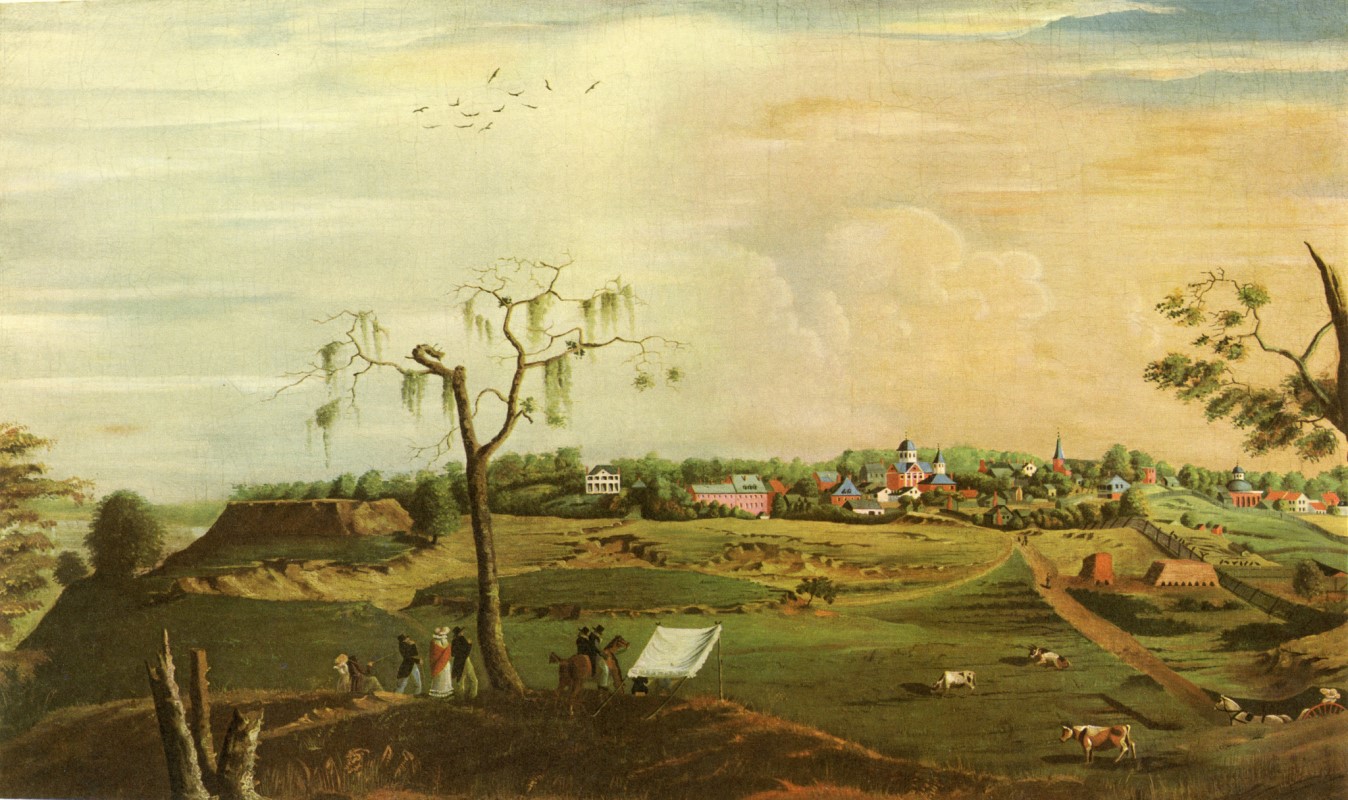In early autumn throngs of travelers descend upon a small town up on the bluffs of the east bank of the Mississippi River about an hour’s drive north of Baton Rouge. This is Natchez, a picturesque town rich in history. Its name came from a local tribe based in the area, opens a new window who were among the last mound-builders of the lower Mississippi valley and whose history became intertwined with the settlers of colonial Louisiana. La Salle first encountered the Natchez in 1682 while sailing down the Mississippi River, and the relationship between the French and the Natchez alternated between amicability and open hostility. The French established a trading post among the Natchez and built Fort Rosalie, opens a new window on the bluffs around which the modern settlement would grow. A brutal war between the Natchez and the French in 1729 all but destroyed the French settlement and ended with the tragic exile of the Natchez people, who found shelter with the Cherokee and Creek nations.
In the subsequent decades, Natchez slowly but steadily grew. The French & Indian War saw control handed to the Spain, who made it the capital of Spanish Louisiana. The War of Independence saw an influx of Tory settlers into the region, but they could not avoid the Patriot government for long, as the Spanish gave Natchez to the United States in 1798 as part of Mississippi territory. Aaron Burr was detained here when suspected of treason for his planned westward expedition, and a military college, opens a new window was established a few miles outside the city. In the 1800s, the area boomed when cotton became king. Plantations arose with fabulous wealth, but at the cost of the unfree labor of thousands of slaves. Nevertheless, a vibrant African American culture, opens a new window grew in the region, and free and unfree Blacks alike became ingrained in the social fabric of Natchez.
During the Civil War, the Union occupied Natchez and General Grant made Rosalie Mansion, opens a new window, right by the site of the original French fort, his base of operations. The Civil War ultimately left Natchez impoverished, like most of the South in the postbellum period. However, the town became a popular tourist destination, with travelers coming to see the relics of the South’s antebellum culture, evident in Natchez’s many homes and plantations.
If you are planning on joining the pilgrimage in Natchez, or just want to learn more about the town's rich history, the library has many books on the famous city on the bluffs.





Add a comment to: Natchez